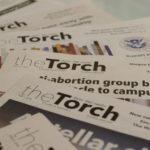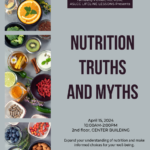
It’s been one year since Derek Chauvin murdered George Floyd. The question everybody has is has anything changed? Do Black people finally feel safe around non-melanated Americans?
The answer is no. We don’t. We still see non-melanated Americans not being held accountable for their crimes time and time again. The patterns that have criminalized Black and Brown youth while protecting others continue.
But despite this, we do keep living and reflecting our black excellence.
The morning of May 26, 2020 I woke up to the news of George Floyd’s death. It was all over my Facebook. I was sad, but I planned on going about my day as usual. After all, Black men have been publicly lynched in America for hundreds of years. Why would this be any different?
But it was. The screams of protest erupted across America and the world. Eugene was no different. I found myself swept up in the movement. I protested, yelled and screamed. I cried. And I started a blog.
I started The Black American Spring out of anger. I’ve always found solace in writing. My wife likes to say writing is my “happy place”. I agree with her. Growing up, I often felt alone and lonely. Like many kids I found friends in books and magazines.
When one of my mentors, Camilla Mortenson, posted about a Google News Initiative Fellowship, I applied. In my mind, I thought my chances were good, but my doubts kept me from believing I would be picked. Thankfully she picked me for the fellowship and I interned at Eugene Weekly for a term.
Writing for Eugene Weekly was a gift that I was not expecting. While it was incredibly challenging, the training I received changed the way I thought about the world. While I was still angry about George Floyd, Trayvon Martin, Sandra Bland and countless others who lost their lives to police brutality, I felt I could help change the narrative. I finally felt like I wasn’t helpless.
This feeling has persisted. Everything I write acknowledges the countless people of color who have died because of state-sanctioned violence.
At the end of my internship at Eugene Weekly, I was approached by another mentor, Charlie Deitz, to be the editor of The Torch. I was familiar with The Torch and while I am critical of my predecessors, I appreciate their work.
During the protests last summer, The Torch was frontline in covering these events. Some people consider this coverage drama(tic). These protests were the most important thing happening last summer. It’s worth considering that if these protests had not occurred, Donald Trump might be serving a second term as president.
I decided not to cover protests because if I am at a rally, I go as a protestor, not as a journalist. The reality is if I were to cover a demonstration, I would be writing about my family. Every single person in my family, on both sides, was out protesting police brutality. Many Black families don’t exist in this “moderate” state. We can’t afford it. We’re trying to survive a racist system. We can’t trust the system to work for us.
The protests in Eugene have died down after the election in recent months. Part of the reason I suspect is that Derek Chauvin was awaiting trial (he has since been convicted.) Another factor, I assume, is Eugene is not very diverse and with COVID-19 still very much active, people are cautious. Also, as businesses reopen, people have returned to work.
I never stopped working. The Torch has been a wonderful experience for me. I’ve met and worked with people that I wish to collaborate with as long as I can. Hannah Baker is an incredibly talented writer. Molly Newhard is one of the hardest-working people I know. John Adair is a multi-talented artist that will go far. Hailey Fisher’s work ethic is second to none. I’m fortunate to have the team that I have.
As I continue down this writing path, I will always carry with me why I got started in this career. George Floyd’s cries will always be my motivating factor. They are forever etched into my mind.
I don’t expect to change anyone’s opinion on race relations. I’m not here to be a bridge between cultures. I’m here to help other people who feel voiceless to be heard. Together we can make a difference, even if it’s a small one.
If not now, then when?


